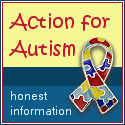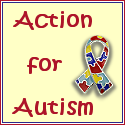New research shows people with autism have more language problems than only taking things litteral.
Cathelijne Tesink, from the depertment of Psychiatry of the Nijmegen University UMC St Radboud and the Donders Institute for Brain, Cognition and Behaviour.
She knew that people with autism experience problems with complex language, and often can't understand jokes, for instance.
She wanted to know whether the language problems are only limited to complex language or whether basal, implicit language poses problems too.
Because spoken language is embedded in the information the speaker and his voice tranfers, distorted perception of the speaker might interfere with understanding of what's said.
She offered people with and without autism sentences which belonged or didn't belong to the voice who was saying them.
Like a child saying that he always drinks a good glass of wine before going to bed, and a grown up saying the same.
Both groups (those with autism and those without) were aware that something strange happened.
In both groups the brainscans registered activity in the language center of the left hemisphere.
But... in autistic people the same area in the right hemisphere was activated too.
Like their brains needed to compensate something to arrive at the correct interpretation.
This finding is in line with the earlier findings that people with autism take language literally and that they have difficulty interpreting the context of language.
(And it also is in line with my observation that many autistic people need more time to process language and children need more explanation to understand language.)
The brainscans showed another difference.
When processing the correct sentences people without autism activated a brain area that is involved with self reference.
This area is active in the evaluation of oneself and others.
This area was not activated in people with autism.
This is the first time scientific research shows that people with autism use compensating neurological mechanisms even for normal daily language.
Even the most basic levels of language understanding are involved.
This is a huge step forward to a new way of diagnosing autism.
Research was published in: Brain
Subscribe to:
Post Comments (Atom)







0 comments:
Post a Comment